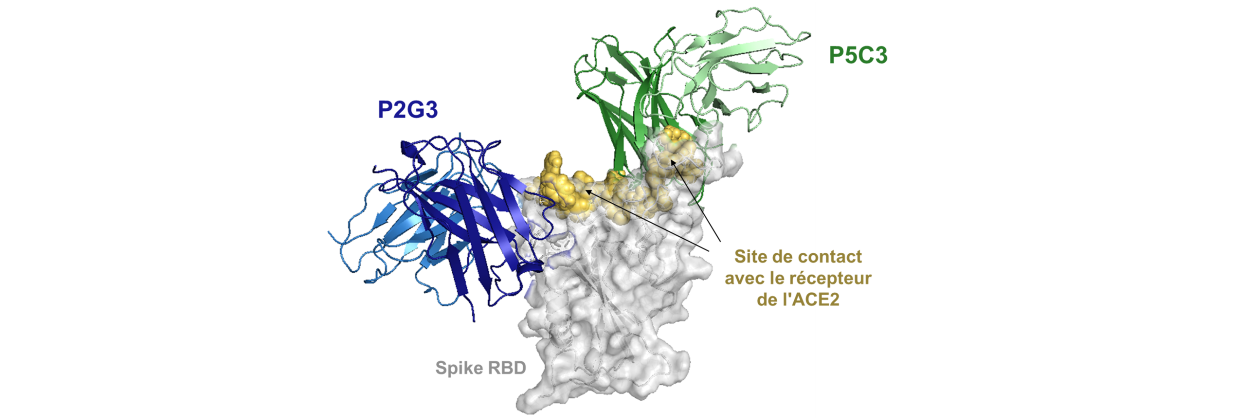
CHUV and EPFL have discovered a new monoclonal antibody that neutralizes the Omicron variants of SARS-CoV-2. This work, published in Nature Microbiology, opens the way to new prophylactic and therapeutic applications.
This new antibody confers complete protection in monkeys when used prophylactically, and also demonstrates high therapeutic efficacy. This discovery therefore opens the way to new therapeutic applications as a drug to protect people at risk, particularly immunocompromised individuals.
The antibody, named P2G3, was isolated from a donor previously infected and vaccinated twice. It shows very potent neutralizing activity against all SARS-COV-2 variants of concern, including Omicron sub-variants. By binding to a specific region of the Spike protein, P2G3 can prevent the virus from binding to the ACE2 receptor present on cells targeted by infection. Furthermore, by binding to this site, P2G3 prevents mutations in all SARS-CoV-2 variants, unlike nearly all anti-SARS-CoV-2 monoclonal antibodies approved or in advanced stages of clinical evaluation.
These structural studies further show that P2G3 and P5C3, another broad spectrum antibody previously identified by the CHUV and EPFL groups, bind to distinct sites on Spike, demonstrating their complementarity. Therefore, although it is possible to select SARS-CoV-2 mutants in cell culture that escape neutralization by P2G3 alone or P5C3 alone, their complementarity means that P2G3 neutralizes mutants that escape P5C3 and vice versa. Finally, studies in primates exposed to the Omicron BA.1 variant indicate that P2G3 alone provides complete protection against infection, and that in combination with P5C3, it is highly effective in blocking virus multiplication in already infected animals. With their potent neutralization and demonstrated protection in animal models, this broadly active combination has the potential to be an excellent anti-SARS-CoV-2 antibody cocktail for prophylactic and therapeutic interventions against all current SARS-CoV-2 variants and potentially against those that may emerge. This research was conducted prior to the emergence of the Omicron BA.4 and BA.5 variants; however, recent data indicate that the P2G3 antibody maintains its neutralizing activity against these BA.4 and BA.5 variants. Clinical trials beginning in August 2022 should confirm this.
The research was conducted by teams from the Immunology and Allergology Department at CHUV, led by Professor Giuseppe Pantaleo and Dr. Craig Fenwick, and the Laboratory of Virology and Genetics at EPFL, led by Professor Didier Trono and Dr. Priscilla Turelli. The research team was able to respond quickly to the pandemic by discovering neutralizing antibodies thanks to the long-standing support of the Swiss Vaccine Research Institute.
The development of this new neutralizing antibody is a milestone in the fight against the COVID-19 pandemic and paves the way for improved management of severe forms of the disease as well as for new prophylactic measures, especially for people with weakened immune systems. However, this discovery is not intended to replace vaccination, which remains the most effective way to protect against infection.